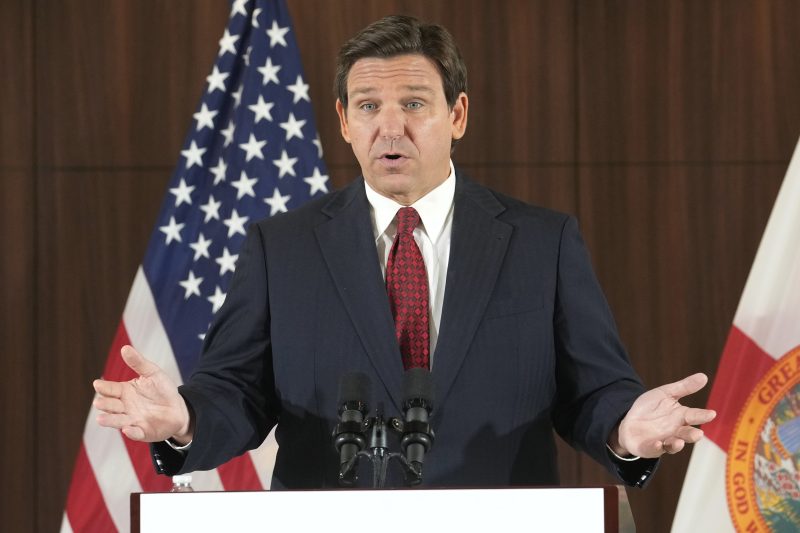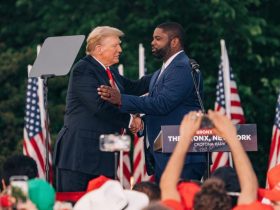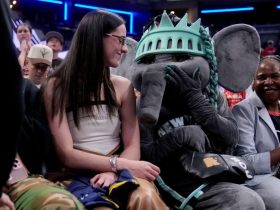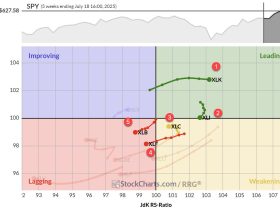Advisers to Florida Gov. Ron DeSantis are actively preparing for a possible presidential run, according to two Republicans with knowledge of the conversations who described meetings and preliminary staffing moves — the latest indication that DeSantis is laying a foundation for a national campaign.
DeSantis’s political team has already identified multiple potential hires in early primary states such as New Hampshire and Iowa, according to one of the Republicans, who said experienced operatives have expressed interest. This Republican also said that Phil Cox and Generra Peck — two key members of DeSantis’s 2022 reelection team — are involved in ongoing talks about 2024.
Another Republican with knowledge of the conversations said DeSantis advisers met recently to discuss the 2024 election. The Republicans spoke on the condition of anonymity to describe private talks.
Some in DeSantis’s orbit expect Cox and Peck would play roles in a DeSantis run, if it happens. Cox, a former executive director of the Republican Governors Association, did not immediately respond to requests for comment, nor did Peck, who was the campaign manager for DeSantis’s decisive midterm victory over Democrat Charlie Crist.
Spokespeople for DeSantis did not respond to a request for comment Friday.
DeSantis is widely seen as a formidable potential challenger to former president Donald Trump, who is hitting the trail for the first time this weekend since his November campaign announcement, with planned Saturday stops in New Hampshire and South Carolina. Some recent polling has shown DeSantis pulling ahead of Trump, including a survey released this week that had the governor leading the ex-president among likely Republican primary voters in New Hampshire.
Bill Bowen, a New Hampshire GOP delegate, said that enthusiasm for a DeSantis campaign is high in his state. “I’m convinced there’s a good network of establishment party people in New Hampshire that will quickly have a very effective DeSantis campaign,” Bowen said.
But DeSantis has said little about his ambitions for 2024 and has dodged questions about his plans. His 19-point reelection margin in Florida this past fall cemented his status as a rising star in the party, just as many Republicans grew newly doubtful of Trump’s ability to deliver conservative wins after many of his endorsed candidates lost key races in the midterms.
DeSantis is one of many Republicans making moves toward entering the 2024 presidential race. Alternative possible candidates include members of Trump’s administration, such as former vice president Mike Pence, and a host of other governors — some of them aligned with Trump, and others who have vocally criticized the former president.
DeSantis, a former congressman, won his first term as governor narrowly in 2018 after pitching himself as an ardent Trump ally and winning the former president’s endorsement. He quickly gained national prominence for his response to the coronavirus pandemic, moving to lift restrictions earlier than many other governors and opposing mask and vaccine mandates.
He has cast himself as an enemy of the “woke” left and embraced fights over divisive social issues, working with the Republican-led Florida legislature to restrict school discussions of sexual orientation and gender identity and feuding with Disney after its leaders criticized the policy.
In his second term, DeSantis has leaned further into fights that galvanize the GOP base. In the span of a few weeks he has sought to reshape a public liberal arts college with conservative board members; faced backlash from civil rights leaders and Democrats over his administration’s decision to bar an Advanced Placement high school course on African American studies; and announced measures against what his office called the “biomedical security state” while featuring a doctor who has baselessly claimed that coronavirus vaccines caused the death of Elvis Presley’s daughter.
GOP supermajorities in the state legislature give DeSantis further power to enact his agenda this term, and Republicans expect to tackle issues such as abortion, data privacy, “constitutional carry” for firearms and the use of “environmental, social and governance” (ESG) criteria in investing, which some conservatives have criticized.
Even as DeSantis has built a reputation beyond his state’s borders, he has never waged a national campaign and some Republicans wonder whether his success will hold on the biggest political stage.
One measure of his ability to persuade political insiders came this week when he praised Harmeet Dhillon, a candidate for Republican National Committee chair, in an interview with conservative activist Charlie Kirk, saying, “I think we need a change.” On Friday Dhillon was defeated by incumbent Ronna McDaniel.








